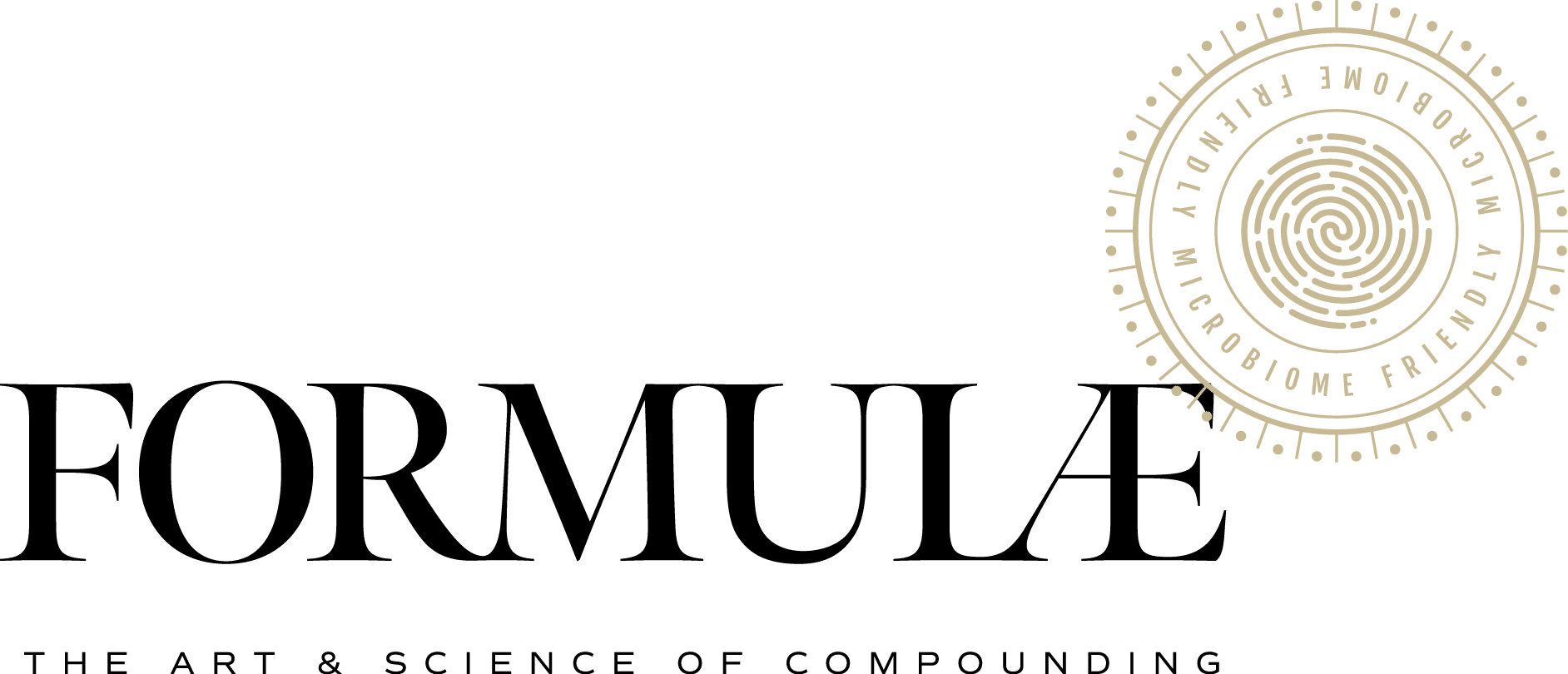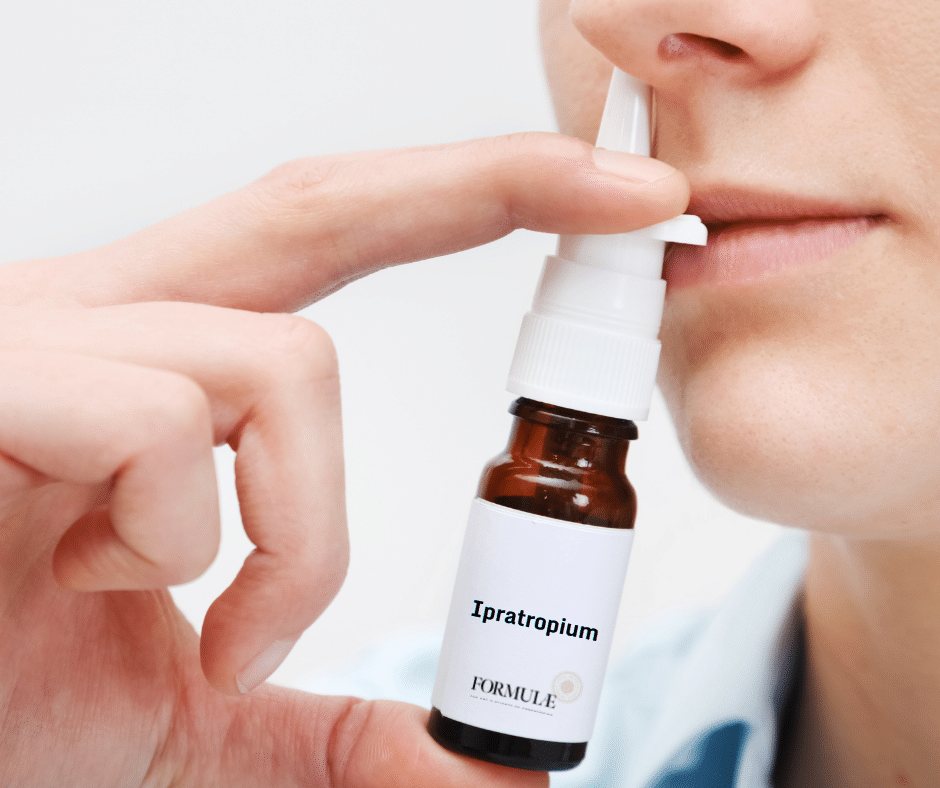Ipratropium is in shortage and looks to be unresolved for at least 4 months.
With the discontinuation of Atrovent nasal spray, there is no longer a commercially available nasal spray that contains ipratropium as a sole active agent.
Our pharmacists have developed a replacement ipratropium nasal spray that is stable and laboratory tested.
Ipratropium bromide is an antimuscarinic agent that is more potent than atropine1.
It is particularly useful in treating rhinitis is due to its actions of blocking goblet cell activity with minimal systemic absorption. Many hayfever and cold and flu preparations available over the counter contain sedating antihistamines which also carry an antimuscarinic effect. However, since absorption is systemic, sedation, along with other possible drug interactions can be an an issue with these preparations. Intranasal ipratropium bromide is a very effective way of controlling seasonal allergic rhinitis as well as colds and flu symptoms without drowsiness or systemic effects. It is suitable for a vast number of patients.
Ipratropium bromide nasal spray has been shown to be safe and improve the quality of life of patients with chronic rhinitis2. It does not alter physiologic nasal functions such as sense of smell, ciliary beat frequency, mucociliary clearance or air conditioning capacity of the nose and works within minutes.
Dose
Adults and Children 12+
2 sprays (88ug ipratropium) 3-4 times daily.
Available OTC however a script can be written as follows:
Rx Ipratropium 44ug per dose nasal spray (compounded).
15ml
If you would like more information please contact your closest Formulae pharmacy.
Saab H, Aboeed A. Ipratropium. [Updated 2021 Sep 17]. In: StatPearls [Internet]. Treasure Island (FL): StatPearls Publishing; 2022 Jan-
Magardino, Thomas M., Dana Suskind-Liu, Hans Kroger, and Natasha Mirza. “Ipratropium Bromide Nasal Spray for Treatment of Rhinorrhea in the Laryngectomized Patient: A Pilot Study.” American Journal of Rhinology 15.3 (2001): 203-206.

